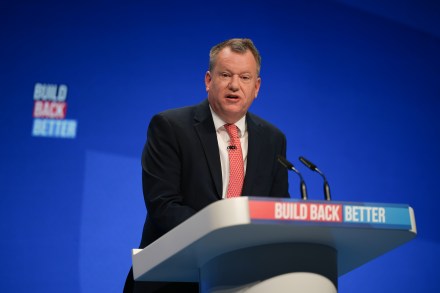Watch: darts fans jeer Johnson
Oh dear. It appears that Boris Johnson’s love-in with the great British public appears to have well and truly concluded. Let’s hope that in the wake of ‘Partygate’, Omicron and various scandals, our under-fire Prime Minister didn’t turn on the darts last night for some much-needed respite. For there, on primetime television, the crowd at London’s Alexandra Palace burst into loud and sustained chants of ‘Stand up if you hate Boris’ that echoed around the 2022 Darts World Championship arena. Others held up signs saying ‘All round to Boris’s for afters’ and with pictures of cheese and wine, branded ‘This is a business meeting.’ It’s not the first time a




















